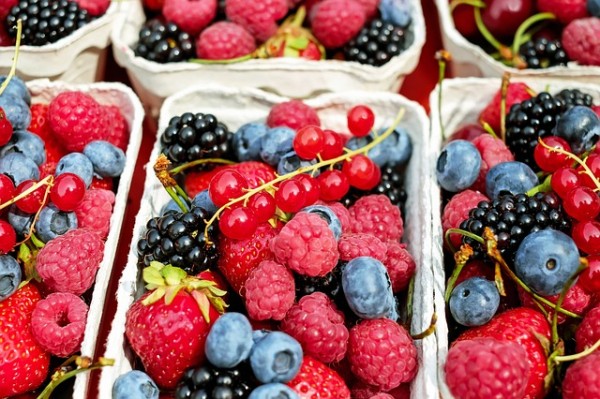Some Foods, Drinks May Contribute to Reduction of Blood Pressure, A New Study Shows
According to the Centers for Disease Control and Prevention, about 45 percent of Americans have hypertension or high blood pressure.
However, only one in four has the condition under control, leaving the majority an increased risk of certain conditions such as heart attack, stroke, and kidney failure.
Now, new British research of around 25,000 people presents that a "diet rich in compounds known as flavonols may contribute to the reduction of blood pressure. The study also shows that the higher the blood pressure of an individual is, "the more effective flavonols maybe."
Reports on the new findings said the research was subsidized by the Medical Research Council and the National Institute for Health Research in the UK and Mars, the maker of M&M's and other candy labels.

Flavonols are ‘naturally-occurring compounds’ found in many plant-based foods and beverages, particularly in apples, berries, spinach, broccoli, onions, red wine, nuts, tea, and cocoa, among others.
How Flavonols Contribute to Reduction of Blood Pressure
Not a lot of people have heard and known about flavonols before if they are more often than not consumed every day. Flavonols are considered "naturally-occurring compounds," which are found in many plant-based foods and beverages, particularly in apples, berries, spinach, broccoli, onions, red wine, and nuts, tea, and cocoa, among others.
According to an epidemiology associate professor at the Harvard TH Chan School of Public Health in Boston, Howard Sesso, "Flavonols may improve blood pressure" by positively affecting the hormones that control the blood pressure. Sesso was not affiliated with the research.
Nevertheless, food can differ wildly in the flavonol they contain-tea, for instance, which can have about 10 to 600 milligrams of flavonols each cup.
Because of this, scientists usually approximate the consumption of flavonol by asking people to recall all the food they usually eat. That, reports indicate, has a big downside.
DON'T MISS THIS: 5 Best Flu-Combating Foods
Self-Reporting of Diets
Food and nutritional sciences professor Gunter Kuhnle, from the University of Reading outside of London, said self-reporting always depends on the study participants to remember and list their food intakes correctly.
However, the professor continued, "We know from many previous studies that this is not always the case," especially since a lot of people typically over-report consuming foods they believe are healthy. Yet, they underreport those that are not so right for them.
For this study, the case was different. Additionally, to scrutinize the diets of people, study investigators measure markers of flavonol consumption, too, in bodies of the volunteers.
Sesso said nutritional biomarkers like those examined in this study "are more objective," not to mention having the "potential to provide high-quality evidence of nutrients on blood pressure and other outcomes.
Therefore, even though this is not the first research to discover a connection between flavonol consumption and lower blood pressure, it may be considered the most precise.
Effectiveness of Flavonols in Blood Pressure
Participants of the study who had the most flavonol consumption were found to have blood pressure readings of 2 to 4 mmHg, lower than the participants who took the least amount of flavonols.
Kuhnle explained, the result was similar to the decrease a person would attain by following the Mediterranean diet or the DASH diet.
However, it is not as much as the decrease of 10mmHG that an individual "would get from taking antihypertensive medication," explained the professor.
Blood pressure is not the only reason, though, to eat more foods rich in flavonols. These powerful compounds may also shield against other conditions like Alzheimer's disease, and they have also been associated with improved memory and mental processing, among others.
In this research, volunteers got most of their flavonols from berries, tea, red wine, and chocolates. Sesso explained, this does not mean, though, that it is okay to load up on chocolates.
Cocoa is rich in flavonols, "but chocolate is not," he elaborated adding because cocoa flavonols are frequently destroyed during chocolate processing.
IN CASE YOU MISSED THIS: Fruits, Vegetables and Whole Grains: Great for Reducing Type 2 Diabetes
Check out more news and information on Hypertension and Diet Trends on MD News Daily.
Nov 11, 2020 12:00 PM EST





